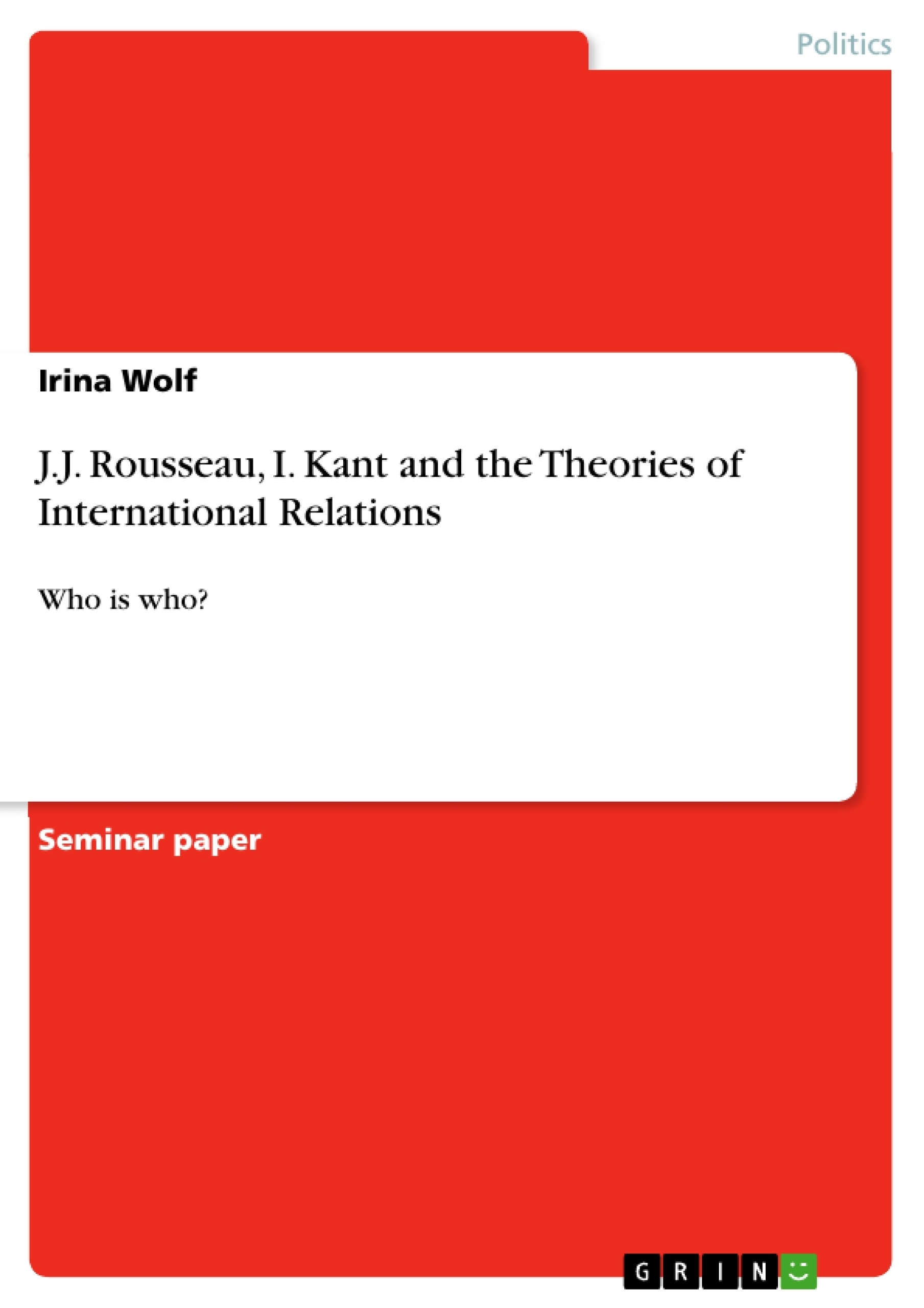Jean-Jacque Rousseau and Immanuel Kant are considered to be relatively modern political thinkers in comparison with the history of IR, so they, as profound philosophers, are not left out of the process of constructing this field as the natural science. They have contributed by leaving their precious works and even more by influencing the minds of people in a great way in terms of Enlightenment. Nonetheless, the main concern of this work is not determining what those thinkers contributed to the theories of IR but, conversely, what ideas of those philosophers tend to be idealistic, realistic, and neoliberal in modern terms. By making an analysis it would be clear that neither Rousseau nor Kant is purely idealist or realist, but both of them tend to be neoliberals.
Inhaltsverzeichnis (Table of Contents)
- Idealism
- Realism
- Neoliberalism
- Conclusion
- Bibliography
Zielsetzung und Themenschwerpunkte (Objectives and Key Themes)
This work examines the ideas of Jean-Jacques Rousseau and Immanuel Kant within the context of modern International Relations (IR) theories. It aims to analyze their ideas and determine how they align with idealism, realism, and neoliberalism. The analysis will reveal that neither philosopher is purely idealist or realist, but rather their ideas tend to be categorized as neoliberal.
- The role of morality in international relations
- The nature of human beings and their impact on international relations
- The influence of Enlightenment ideals on international relations
- The concepts of idealism, realism, and neoliberalism in modern international relations
- The relationship between individual and state in international relations
Zusammenfassung der Kapitel (Chapter Summaries)
This chapter explores the concept of idealism in international relations. It focuses on the key principles of idealism, highlighting the belief in human nature as inherently good and the potential for international cooperation. The chapter discusses how Rousseau and Kant, despite their contributions to the Enlightenment, may not fit neatly into the idealist category, paving the way for the exploration of their alignment with other IR theories.
This chapter delves into the theory of realism in international relations. It examines the core tenets of realism, which emphasize a focus on power, self-interest, and the inevitability of conflict in international affairs. The chapter analyzes how the ideas of Rousseau and Kant, although not purely realist, intersect with certain realist principles.
This chapter analyzes the theory of neoliberalism in international relations. It discusses how neoliberalism blends elements of both idealism and realism, emphasizing the potential for cooperation within a self-interested international system. The chapter explores the extent to which Rousseau and Kant's ideas can be considered neoliberal, highlighting the complex interplay between their ideas and the key tenets of this IR theory.
Schlüsselwörter (Keywords)
This work examines the key concepts of International Relations (IR), including idealism, realism, and neoliberalism, through the lens of the works of Jean-Jacques Rousseau and Immanuel Kant. It explores the nature of human beings, the role of morality in international affairs, and the potential for cooperation and conflict in the international system. Key figures discussed include Rousseau, Kant, and Hobbes.
- Quote paper
- Irina Wolf (Author), 2001, J.J. Rousseau, I. Kant and the Theories of International Relations, Munich, GRIN Verlag, https://www.grin.com/document/130066




